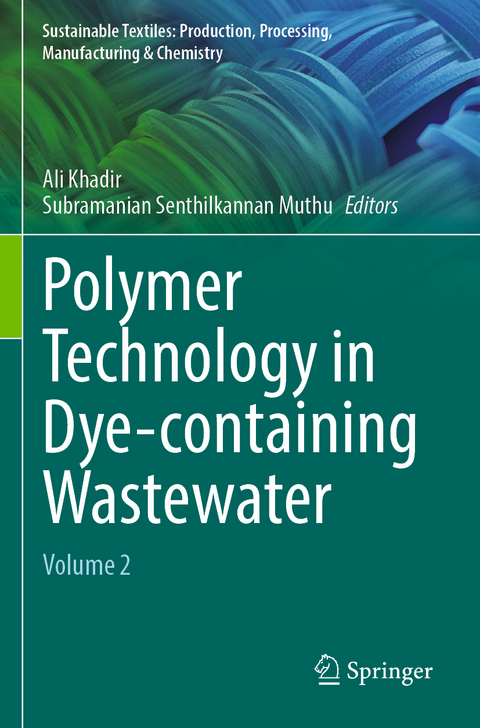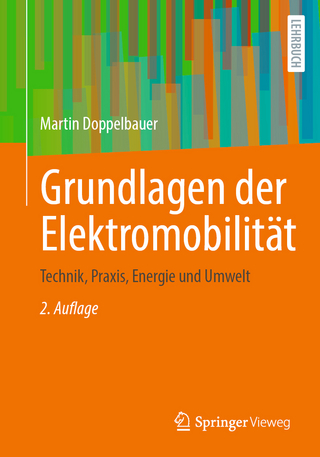
Polymer Technology in Dye-containing Wastewater
Springer Verlag, Singapore
978-981-19-0888-0 (ISBN)
Ali Khadir is an environmental engineer and a member of the Young Researcher and Elite Club, Islamic Azad University of Shahre Rey Branch, Tehran, Iran. He has published several articles and book chapters in reputed international publishers, including Elsevier, Springer, Taylor & Francis, and Wiley. His articles have been published in journals with IF of greater than 4, including Journal of Environmental Chemical Engineering and International Journal of Biological Macromolecules. He also has been the reviewer of journals and international conferences. His research interests center on emerging pollutants, dyes, and pharmaceuticals in aquatic media, advanced water and wastewater remediation techniques and technology. Dr. Subramanian Senthilkannan Muthu currently works for SgT Group as Head of Sustainability, and is based out of Hong Kong. He earned his PhD from The Hong Kong Polytechnic University, and is a renowned expert in the areas of EnvironmentalSustainability in Textiles & Clothing Supply Chain, Product Life Cycle Assessment (LCA) and Product Carbon Footprint Assessment (PCF) in various industrial sectors. He has five years of industrial experience in textile manufacturing, research and development and textile testing and over a decade's of experience in life cycle assessment (LCA), carbon and ecological footprints assessment of various consumer products. He has published more than 100 research publications, written numerous book chapters and authored/edited over 100 books in the areas of Carbon Footprint, Recycling, Environmental Assessment and Environmental Sustainability.
Polymeric membranes nanocomposites as effective strategy for dye removal.- Poly(vinyl alcohol) (PVA)-based treatment technologies in the remediation of dye-containing textile wastewater.- Natural biodegradable polymeric bio-adsorbents for textile wastewater.- Polymer‐ Derived Ceramic Adsorbent For Removal of Dyes From Water.- Polymeric hydrogels for dye adsorption.- Dye Removal Using Polymer Composites as Adsorbents.- Bacterial Extracellular Polymeric Substances for Degradation of Textile Dyes.- Polymer Derived Electrospun Ceramic Nanofibers Adsorbents for Textile Waste Water Treatment.- Polymer Membrane in Textile Wastewater.- Applications of Inorganic Polymers in Textile Wastewater Treatment.
| Erscheinungsdatum | 26.04.2023 |
|---|---|
| Reihe/Serie | Sustainable Textiles: Production, Processing, Manufacturing & Chemistry |
| Zusatzinfo | 53 Illustrations, color; 19 Illustrations, black and white; VII, 245 p. 72 illus., 53 illus. in color. |
| Verlagsort | Singapore |
| Sprache | englisch |
| Maße | 155 x 235 mm |
| Themenwelt | Naturwissenschaften ► Biologie ► Ökologie / Naturschutz |
| Naturwissenschaften ► Geowissenschaften ► Hydrologie / Ozeanografie | |
| Technik ► Maschinenbau | |
| ISBN-10 | 981-19-0888-5 / 9811908885 |
| ISBN-13 | 978-981-19-0888-0 / 9789811908880 |
| Zustand | Neuware |
| Informationen gemäß Produktsicherheitsverordnung (GPSR) | |
| Haben Sie eine Frage zum Produkt? |
aus dem Bereich


